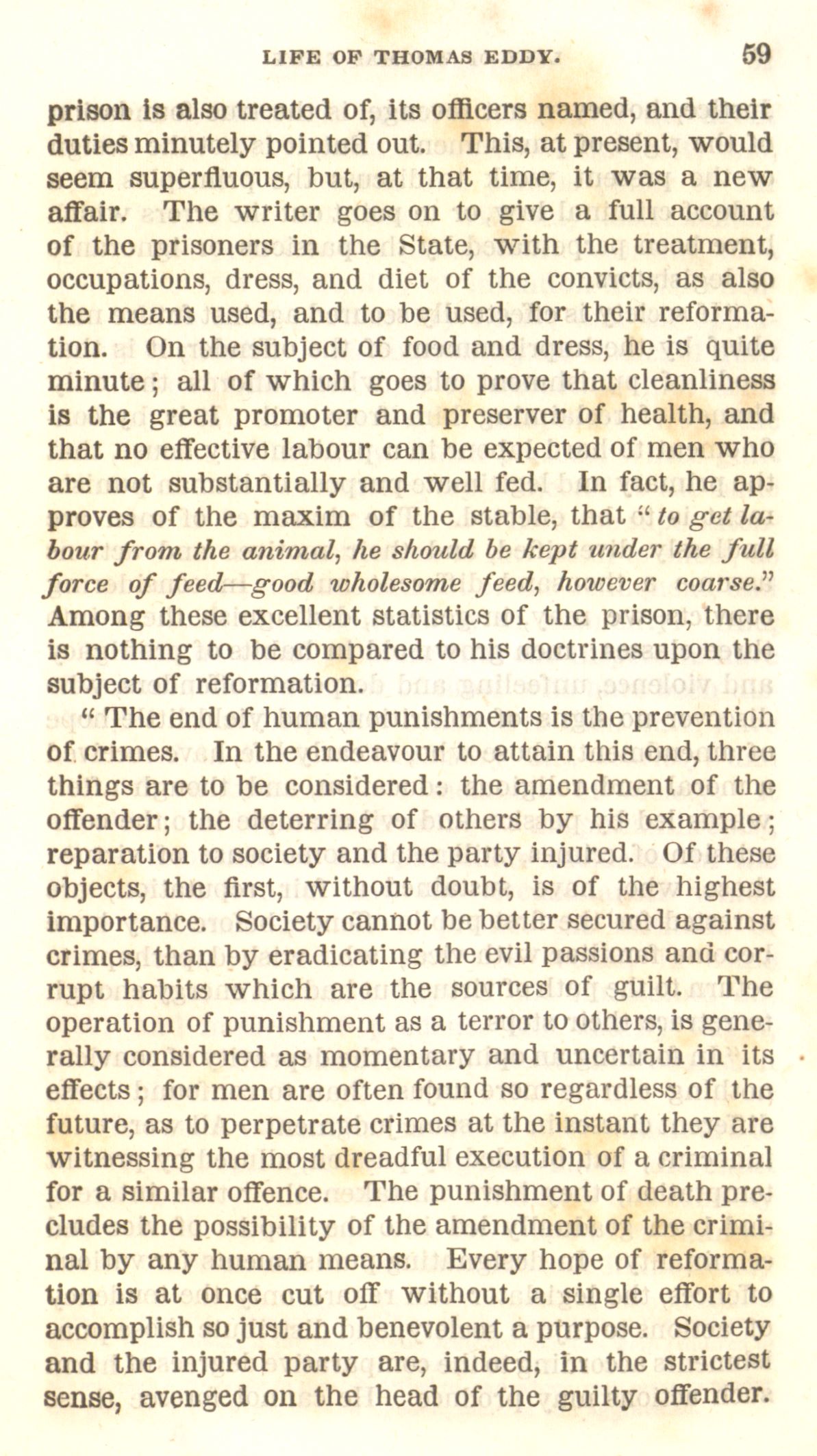prison is also treated of, its officers named, and
their
duties minutely pointed out. This, at present, would
seem
superfluous, but, at that time, it was a new
affair. The writer goes on to
give a full account
of the prisoners in the State, with the treatment,
occupations, dress, and diet of the convicts, as also
the means used, and
to be used, for their reforma-
tion. On the subject of food and dress, he is
quite
minute; all of which goes to prove that cleanliness
is the great
promoter and preserver of health, and
that no effective labour can be
expected of men who
are not substantially and well fed. In fact, he
ap-
proves of the maxim of the stable, that to
get la
bour from the animal, he should be kept under the full
force of feed—good wholesome feed, however coarse.
Among these excellent statistics of the prison, there
is nothing to be
compared to his doctrines upon the
subject of reformation.
The end of human punishments is the prevention
of crimes. In the
endeavour to attain this end, three
things are to be considered:
the amendment of the
offender; the deterring of others by his
example;
reparation to society and the party injured. Of these
objects, the first, without doubt, is of the highest
importance.
Society cannot be better secured against
crimes, than by
eradicating the evil passions and cor-
rupt habits which are the
sources of guilt. The
operation of punishment as a terror to
others, is gene-
rally considered as momentary and uncertain in
its
effects; for men are often found so regardless of the
future, as to perpetrate crimes at the instant they are
witnessing
the most dreadful execution of a criminal
for a similar offence.
The punishment of death pre-
cludes the possibility of the amendment
of the crimi-
nal by any human means. Every hope of
reforma-
tion is at once cut off without a single effort to
accomplish so just and benevolent a purpose. Society
and the
injured party are, indeed, in the strictest
sense, avenged on the
head of the guilty offender.

